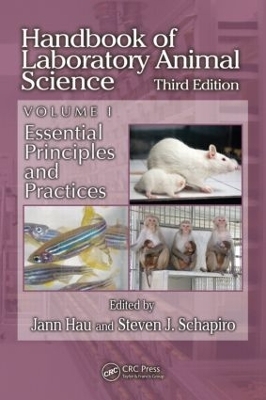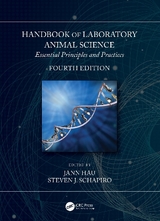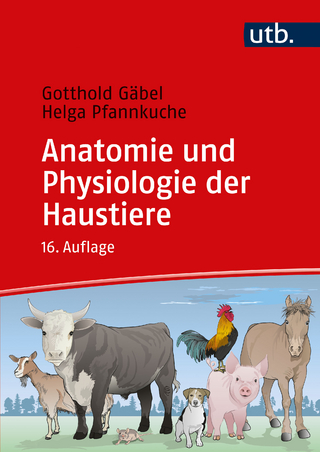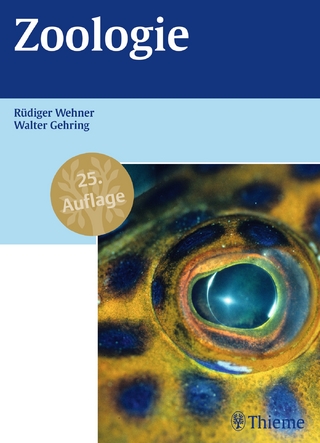
Handbook of Laboratory Animal Science, Volume I
Crc Press Inc (Verlag)
978-1-4200-8455-9 (ISBN)
- Titel erscheint in neuer Auflage
- Artikel merken
Rooted in the principle that good science can only be performed in environments that promote good animal welfare, this third edition of the bestselling Handbook of Laboratory Animal Science, Vol. 1, Essential Principles and Practices emphasizes the importance of implementing the three R’s: replacing live animals with alternative methods, reducing the number of animals used, and refining techniques to minimize animal discomfort, and integrates these humane principles into almost every chapter.
See what's new in the Third Edition:
New chapters: Applications of Radio-Telemetry in Small Laboratory Animals, Generation and analysis of genetically modified mice, and Physiological, Hematological, and Clinical Chemistry Parameters
Additional mateiral on the international harmonization of practices and on the continued implementation of the refinement, reduction, and replacement of animal usage in laboratories
Sixteen page color insert
Relevant to virtually all areas of laboratory science and forming the cornerstone of laboratory animal science, each individual chapter focuses on an important subdiscipline of laboratory animal science including humane laws and guidelines; non-surgical, surgical, microsurgical, and post-mortem procedures; genetic modification; nutrition, feeding, and environmental factors; experiment design and alternative methods; and analgesia, anesthesia, and euthanasia. Each chapter can be read in series or as a stand alone text.
A truly international effort from world renowned contributors, Handbook of Laboratory Animal Science, Vol. 1, Essential Principles and Practices, Third Edition is useful as a textbook in laboratory animal science courses for postgraduate and undergraduate students, as a handbook for scientists who work with animals in their research, and for university veterinarians, regulators, and other specialists in laboratory animal science.
University of Copenhagen & Rigshhospitalet, Denmark The University of Texas, Bastrop, Texas, USA
The Contribution of Laboratory Animals to Medical Progress — Past, Present, and Future. Ethics of Animal Research. An Overview of Global Legislation, Regulation and Policies. Assessment of Animal Care and Use Programs and Facilities. Education and Training. Laboratory Animal Science and Service Organizations. Laboratory Animal Allergy and Zoonoses. Laboratory Animal Facilities and Equipment for Conventional, Barrier, and Containment Housing Systems. Laboratory Animal Genetics and Genetic Quality Control. Health Status and Health Monitoring. Nutrient Requirements, Experimental Design, and Feeding Schedules in Animal Experimentation. Impact of the Biotic and Abiotic Environment on Animal Experiments. Experimental Design and Statistical Analysis. Common Nonsurgical Techniques and Procedures. Applications of Radio-Telemetry in Small Laboratory Animals. Immunization for Production of Antibodies. Laboratory Animal Analgesia, Anesthesia, and Euthanasia. Welfare Assessment and Humane Endpoints. Surgery: Basic Principles and Procedures. Microsurgical Procedures in Experimental Research. Postmortem Procedures. Alternatives: Refinement, Reduction and Replacement of Animal Uses in the Life Sciences. Generation and Analysis of Genetically Modified Mice. Physiological, Hematological, and Clinical Chemistry Parameters (including Conversion Factors).
| Erscheint lt. Verlag | 20.12.2010 |
|---|---|
| Verlagsort | Bosa Roca |
| Sprache | englisch |
| Maße | 178 x 254 mm |
| Themenwelt | Medizin / Pharmazie |
| Naturwissenschaften ► Biologie ► Zoologie | |
| Veterinärmedizin ► Klinische Fächer ► Versuchstiere | |
| ISBN-10 | 1-4200-8455-0 / 1420084550 |
| ISBN-13 | 978-1-4200-8455-9 / 9781420084559 |
| Zustand | Neuware |
| Informationen gemäß Produktsicherheitsverordnung (GPSR) | |
| Haben Sie eine Frage zum Produkt? |
aus dem Bereich



